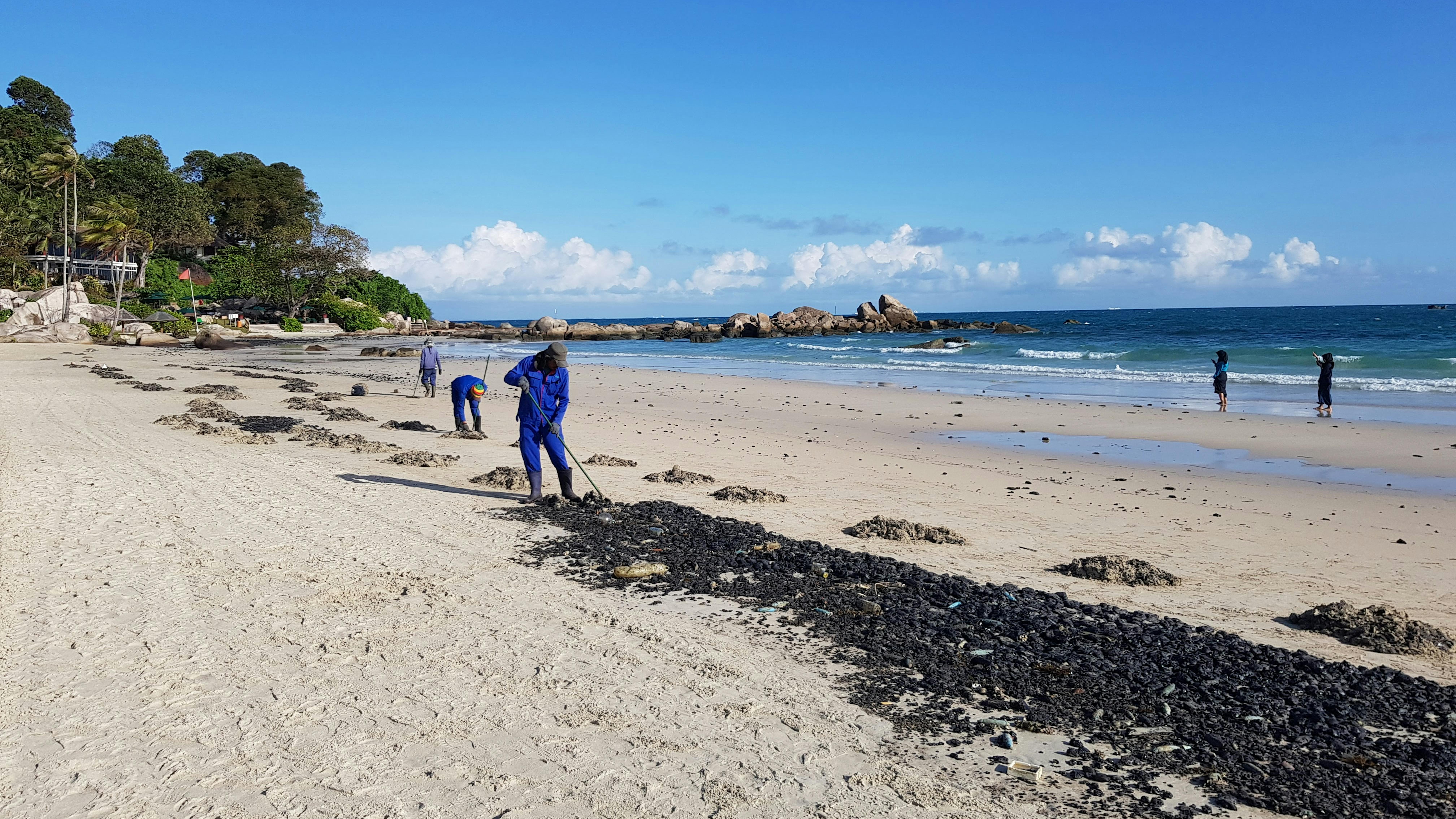At least one ship a day dumps its waste oil in Indonesian waters, an expert in satellite imaging analysis commented in an interview with Eco-Business last year.
To continue listening, subscribe to Eco‑Business.
There's something for everyone. We offer a range of subscription plans.
- Access our stories and receive our Insights Weekly newsletter with the free EB Member plan.
- Unlock unlimited access to our content and archive with EB Circle.
- Publish your content with EB Premium.
Southeast Asia is the world’s hot spot for bilge dumping — the illegal discharge of waste oily water from a ship’s bilge.
The effects on the regional bloc’s coastline are clearly visible, with thick clumps of oily sludge covering beaches, smothering coal reefs, and ruining fishermen’s gear.
But alarmingly little is being done to stop bilge dumping. It is rare that ships are caught, rarer still that a ship operator is prosecuted for an act that breaches the International Convention for the Prevention of Pollution from Ships, or Marpol.

Andrew Dixon, director, Nikoi island and Cempedak
Andrew Dixon, who runs two luxury island resorts in Indonesia, Nikoi Island and Cempedak, has witnessed firsthand the consequences of bilge dumping, and has been using technology to limit the problem. A tracking system on his resort sends automatic emails to the ships as they approach, letting them know they are being watched.
Dixon joins the Eco-Business Podcast to talk about:
- The consequences of bilge dumping
- Why ships do it
- Why aren’t local authorities acting?
- What can be done to tackle the problem
- The future of our seas




















